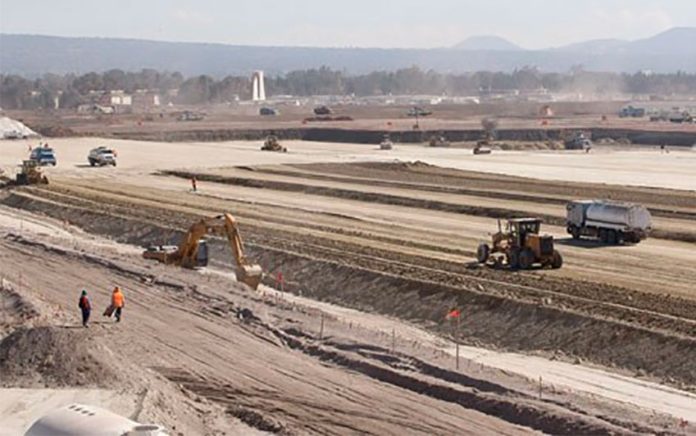More details have emerged about how President López Obrador plans to create 2 million jobs by the end of the year to help reactivate the coronavirus-battered economy.
The president met with his cabinet on Tuesday to review the economic plan he presented in a televised address on Sunday.
The government intends to create a significant proportion of the new jobs via its large infrastructure projects, including the Maya Train railroad in the country’s southeast, the Santa Lucía airport north of Mexico City, the Dos Bocas oil refinery on the Tabasco coast and the Isthmus of Tehuantepec trade corridor between Salina Cruz, Oaxaca, and Coatzacoalcos, Veracruz.
Federal Electricity Commission (CFE) chief Manuel Bartlett said after the meeting that the heads of each ministry and agency involved in the government’s infrastructure projects outlined how many jobs were expected to be created.
“With the CFE plan, we’ll have significant job creation,” he said. “There will be a lot of jobs [in government projects], more than a million.”
Bartlett didn’t disclose how many jobs will be specifically created by CFE projects, such as the construction of power plants in Yucatán and Baja California Sur, but stressed that the utility has an “enormous investment program” that will strengthen the state-owned company.
Communications and Transportation Minister Javier Jiménez Espriú said that projects in which his department is participating, including construction of the new airport and an upgrade of the capital’s existing airport, are expected to generate 110,000 direct jobs and 240,000 indirect ones.
For his part, National Tourism Promotion Fund (Fonatur) chief Rogelio Jiménez Pons said that construction of the Maya Train through the states of Tabasco, Campeche, Yucatán, Quintana Roo and Chiapas will create 80,000 jobs.
He said that Fonatur, which is managing construction of the 1,500-kilometer railroad, is taking the necessary steps so that the project can commence as soon as Mexico has the Covid-19 outbreak under control. Construction had been expected to commence at the end of this month.
The general director of the state-owned Banco del Bienestar (Bank of Well-Being) told reporters that the construction this year of 1,350 branches of the so-called “bank of the poor” will also create jobs, although he didn’t cite a specific number.
Rabindranath Salazar said that more jobs will be created once the branches have been built because they will need employees to staff them. The government intends to distribute welfare payments to people living in rural areas via the new banks, which will have the largest network of branches in the country if the plan to build 2,700 by the end of 2021 comes to fruition.
Salazar highlighted that the other projects the government is building will also require large numbers of personnel once they are completed. However, none of the major projects – the airport, the refinery, the Maya Train – will be completed before 2022.
In his address Sunday, López Obrador said that 200,000 new jobs will be created via an expansion of the tree-planting program known as Sembrando Vida (Sowing Life) and that some 228,000 people will be employed to build 50,000 homes in marginalized areas of the country.
In a Twitter post on Tuesday, he reiterated that the three “basic objectives” of the government’s economic response to the coronavirus pandemic are to support 22 million poor people; provide 2.1 million loans between April and December; and create 2 million jobs in eight months.
López Obrador said on Wednesday that distribution of 25 billion pesos (just over US $1 billion) worth of loans to small businesses will commence in the first week of May. He said that 1 million small business owners in the formal and informal sectors will initially be offered loans, explaining that they will be distributed via three private banks that won’t charge any commissions.
“They will be distributed … where the epidemic is having the greatest impact and where the economy is most affected,” López Obrador said.
However, he added that the loan scheme will mainly benefit people in urban areas because other programs, such as Sembrando Vida, will provide employment opportunities and financial support to those in the countryside.
The president said that the loans will be repayable at the current Bank of México benchmark interest rate of 6.5% over a period of three years. The aim of the loans, he said, is to provide an injection of funds into the economy that will stimulate growth.
The federal Finance Ministry (SHCP) is predicting that the Mexican economy could shrink by as much as 3.9% this year due to the coronavirus pandemic while the Bank of America is forecasting an even more dire contraction of 8%.
Business groups and financial institutions have been critical of the economic plan announced by López Obrador, claiming that it will do little to help the economy through the biggest economic crisis in generations.
Source: El Economista (sp), Milenio (sp), La Jornada (sp)
